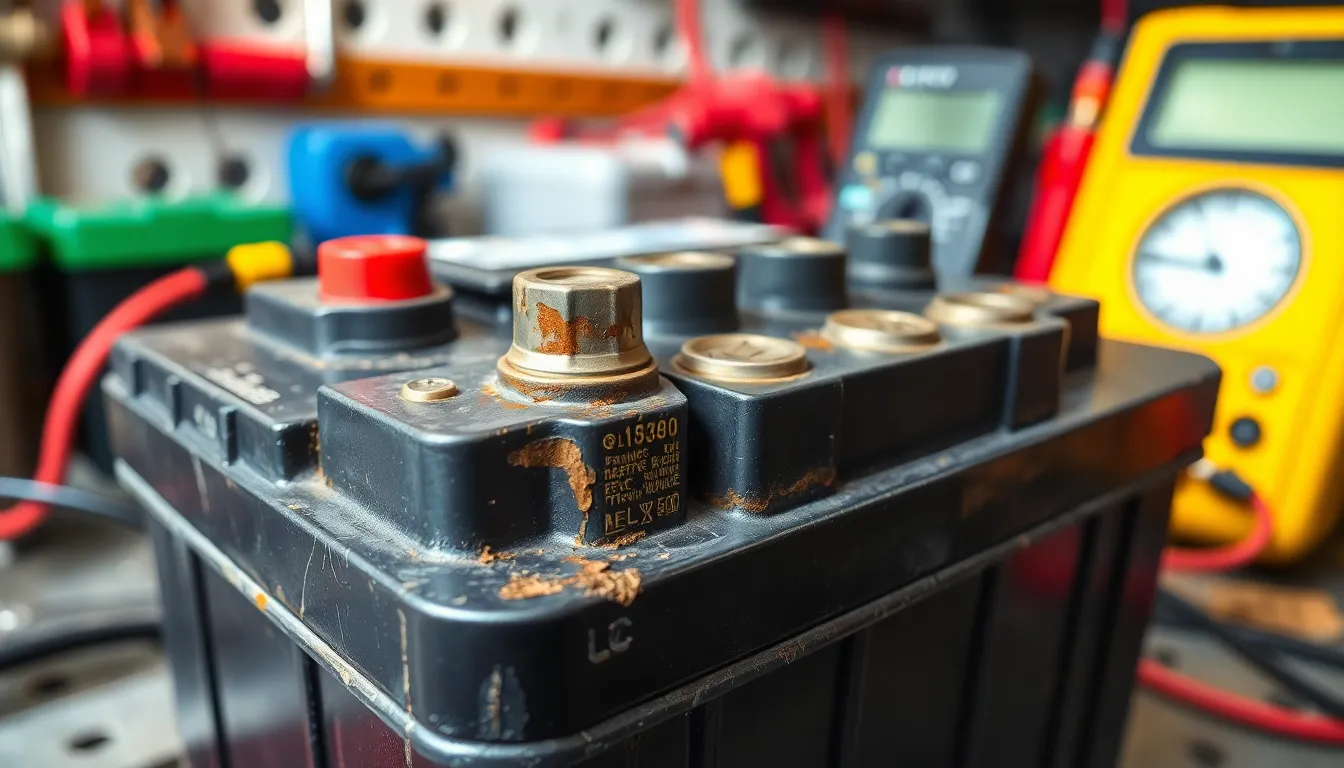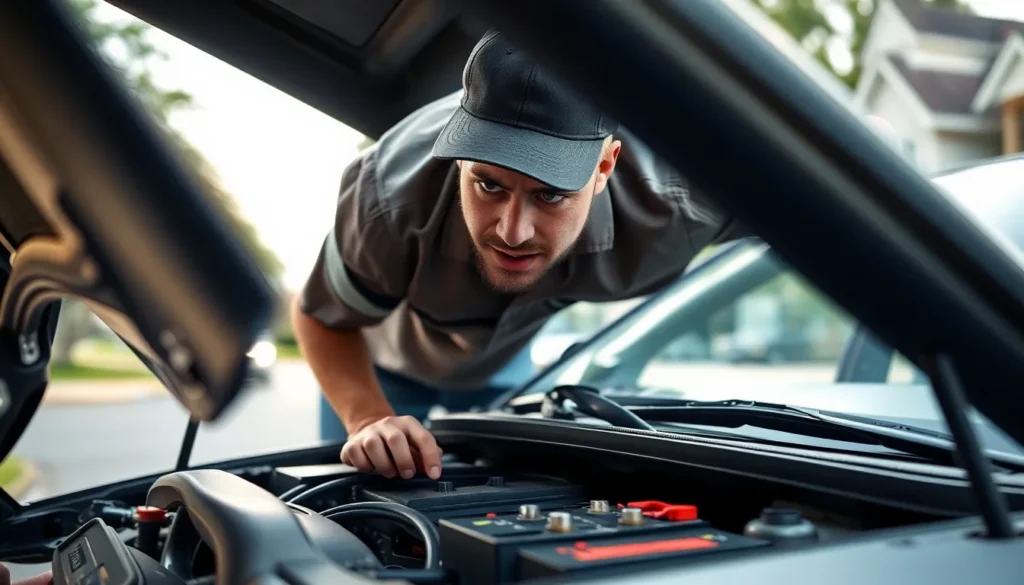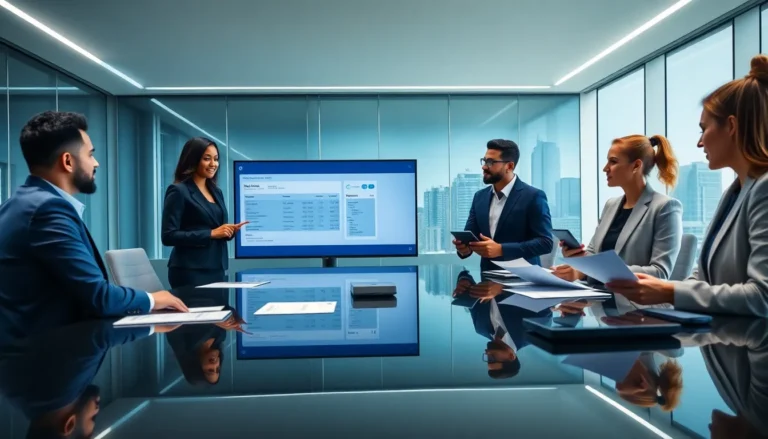Table of Contents
ToggleWhen a car won’t turn over and just clicks, it can be a frustrating experience for any driver. This common issue often signals underlying problems that need immediate attention. Understanding the potential causes can save time and money, helping to pinpoint whether it’s a simple fix or something more serious.
Several factors could lead to this clicking sound, from a dead battery to a faulty starter motor. Drivers may feel overwhelmed, but identifying the symptoms can lead to effective solutions. By exploring the reasons behind a car that won’t start, owners can take informed steps toward getting back on the road.
Understanding the Problem
A car that won’t turn over and only clicks can signal various issues. Identifying symptoms and understanding possible causes helps drivers address the problem effectively.
Common Symptoms
- Clicking Noise: A rapid clicking noise during an attempt to start the engine often indicates insufficient power from the battery.
- No Start: The engine doesn’t respond, and no additional sounds occur, confirming the vehicle won’t crank.
- Dim Lights: Dashboard lights and headlights may appear dim or flicker when trying to start the car, further pointing to battery issues.
- Electrical Failures: Malfunctioning electronic components, such as power windows or radio, might indicate a weak battery or poor connections.
Possible Causes
- Dead Battery: A battery with insufficient charge due to age or prolonged inactivity often leads to clicking sounds rather than engine activation.
- Faulty Starter Motor: A malfunctioning starter motor prevents the engine from cranking and may produce a clicking noise when engaged.
- Poor Battery Connections: Corroded or loose battery terminal connections can disrupt power flow, causing the vehicle to click without turning over.
- Alternator Issues: A malfunctioning alternator might fail to recharge the battery, leading to a loss of power over time.
- Fuses and Relays: Burnt-out fuses or faulty relays in the starting system can also result in a non-starting condition.
Battery Issues

Battery issues frequently cause a car to click without turning over. Identifying these problems can lead to quick solutions.
Weak or Dead Battery
Weak or dead batteries inhibit the necessary power to start a vehicle. Commonly, a battery’s life span ranges from three to five years, depending on usage and maintenance. If the vehicle exhibits a rapid clicking noise during attempts to start, the battery might not hold a sufficient charge. Testing the battery’s voltage with a multimeter can confirm its condition: a reading below 12.4 volts indicates a weak battery, while a reading below 12 volts indicates a dead battery. Recharging or replacing the battery usually resolves the issue.
Corroded Terminals
Corroded battery terminals obstruct the flow of electricity between the battery and the starter motor. Visible signs of corrosion include white, ashy deposits around the terminal posts. Cleaning corroded terminals can improve connectivity; removing corrosion with a mixture of baking soda and water restores electrical flow. Regular inspections can prevent terminal corrosion buildup, ensuring reliable vehicle performance.
Starter Motor Problems
Starter motor problems frequently cause a vehicle to click without turning over. Understanding these issues can assist in diagnosing and resolving the problem efficiently.
Faulty Starter Motor
A faulty starter motor often results in a clicking sound when attempting to start a vehicle. This issue arises due to worn-out components, such as brushes or solenoids. Symptoms of a failing starter include a single click or rapid clicking when the ignition is turned. Testing the starter motor typically involves checking for voltage at the starter terminals while engaging the ignition. If no voltage is present, the starter might need replacement.
Starter Relay Issues
Starter relay issues can also contribute to clicking noises and starting failures. A malfunctioning relay disrupts the electrical current from the battery to the starter motor, causing the clicking sound. Owners can test the relay by swapping it with a similar relay, such as one from the horn. If the car starts after swapping, the old relay needs replacement. Regular testing of the starter relay supports maintaining reliable vehicle performance.
Electrical System Check
Assessing the electrical system plays a critical role in diagnosing why a car won’t turn over and only clicks. Identifying wiring issues and examining fuses and connections helps in pinpointing the problems that may inhibit vehicle performance.
Wiring Issues
Wiring issues can lead to interruptions in electrical flow, resulting in clicking sounds when attempting to start a vehicle. Damaged wires may be a result of wear and tear, corrosion, or physical damage. Inspect wiring harnesses for frayed or broken wires, especially near connections and moving components. Checking for loose connections is essential; a loose wire can prevent the starter from receiving sufficient voltage. Repairing damaged wires involves splicing or replacing them completely, ensuring a reliable connection for smooth operation.
Fuses and Connections
Fuses serve as protective devices in the electrical system; blown fuses can interrupt power supply, causing clicking sounds instead of engine turnover. Inspect the fuse box for any blown fuses, especially those linked to the starting and ignition systems. Replacing blown fuses with the correct amperage rating restores functionality. Additionally, examining battery and starter connections for corrosion is vital; clean connections enhance electrical flow. Tightening any loose connections ensures that the starter receives adequate power, reducing the chances of clicking noises preventing vehicle start-up.
Troubleshooting Steps
To effectively diagnose a car that won’t turn over and only clicks, it’s essential to follow a systematic approach. The first phase involves basic checks, while the second focuses on advanced diagnostics.
Basic Checks
- Battery Inspection: Check the battery voltage using a multimeter. A voltage below 12.4 volts indicates a weak battery.
- Connection Assessment: Inspect battery terminals and cables for corrosion or looseness. Clean corroded terminals with a wire brush and ensure connections are tight.
- Headlight Test: Turn on the vehicle’s headlights. If they dim significantly when attempting to start the engine, the battery may be weak.
- Key Check: Verify that the key fob battery is functional. A non-responsive key can cause starting issues in vehicles with electronic ignition systems.
Advanced Diagnostics
- Starter Motor Testing: Use a multimeter to check for voltage at the starter motor terminals while a helper turns the ignition. If no voltage is present, the starter motor may be faulty.
- Relay Evaluation: Identify the starter relay in the fuse box and swap it with a similar relay. If the car starts, replace the faulty relay.
- Wiring Examination: Inspect starter and battery wiring for damage. Look for signs of wear, fraying, or corrosion. Repair or replace any damaged wiring to ensure proper electrical flow.
- Fuse Inspection: Check all relevant fuses in the fuse box. A blown fuse can disrupt power to the starter motor. Replace any blown fuses with the correct amperage rating.
Following these steps can help pinpoint the issue preventing the car from starting and assist in determining the necessary repairs.
When to Seek Professional Help
Assessing car issues might not cover all potential problems. When clicking sounds persist despite troubleshooting efforts, seeking professional help becomes crucial.
Evaluate the situation when:
- Persistent Clicking: Clicking noises continue after checking the battery, starter motor, and electrical connections. Persistent issues often indicate deeper problems.
- Electrical System Concerns: Signs of significant wiring damage, such as exposed or burnt wires, require expert intervention to prevent further vehicle damage.
- Starter Motor Failures: Frequent starter motor issues indicate replacement or repair needs, especially if self-diagnostics yield no results.
- Inconsistent Performance: Repeated instances of the car only clicking without turning over suggest potential underlying defects in the vehicle’s electrical or ignition systems.
- Inability to Diagnose: Complex issues or unfamiliarity with automotive systems often warrant a professional mechanic for accurate diagnosis and repair.
Consulting a certified mechanic ensures comprehensive analysis and rectification of persistent car starting issues. Professional assessment guarantees adherence to safety standards and reliable results.
Understanding why a car won’t turn over and only clicks is essential for any vehicle owner. By recognizing the symptoms and potential causes, they can take the right steps to diagnose the issue. Whether it’s a dead battery a faulty starter motor or electrical system problems addressing these concerns promptly can save time and money.
When in doubt or faced with persistent issues it’s wise to consult a certified mechanic. Professional help ensures a thorough evaluation and effective solutions. With the right knowledge and approach car owners can confidently tackle starting issues and get back on the road safely.








